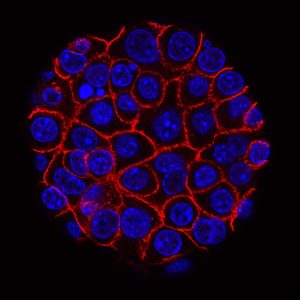
AstraZeneca scores positive real-world Forxiga data
pharmafile | September 16, 2015 | News story | Research and Development | AstraZeneca, EASD, European Association for the Study of Diabetes, Forxiga, dapagliflozin, exenatide, real world data, real world evidence
The real-world study of AstraZeneca’s diabetes drug Forxiga has found its use in UK patients primary care patients supports the results seen in clinical trials.
The study, presented at the European Association for the Study of Diabetes (EASD) congress in Stockholm, found that the reductions in blood glucose and weight that were seen in AstraZeneca’s clinical trial programme are also observed in real-world practice.
This is the first study looking at real-world use of a sodium-glucose co-transporter-2 (SGLT2) inhibitor in UK primary care. Researchers anonymised the records of 1,732 people with type 2 diabetes who were treated with Forxiga (dapagliflozin), taken from the Clinical Practice Research Datalink (CPRD).
Patients’ blood sugar and weight measurements were recorded at different time points. In the overall group, the average reductions seen in blood sugar levels, measured as HbA1c percentage, ranged from -0.89 to 1.16%, and weight differences between -2.6 to 4.6kg, respectively, across the different time periods analysed.
The study also looked specifically at the most common treatment combinations with Forxiga, and found similar average reductions in HbA1c and weight, respectively, across subgroups in the different time periods analysed when used in combination with metformin, in triple therapy and as an add-on to insulin.
Forxiga is recommended by NICE for some people with type 2 diabetes. Globally, AstraZeneca faces competition in this class of drug from Boehringer Ingelheim and Lilly’s co-marketed SGLT2 drug Jardiance (empagliflozin), and Johnson & Johnson’s competitor Invokana (canagliflozin)
“In the UK, more than 60,000 patients have been treated with dapagliflozin since launch in 2012, and it is the only SGLT2 inhibitor with almost three years of patient experience,” says Lisa Anson, president of AstraZeneca UK and Ireland. “Dapagliflozin is now the first SGLT2 inhibitor to have these data in the UK, showing reductions in HbA1c and weight in real-world clinical practice, which provides reassurance to clinicians and brings to life the impact that this medicine is having on individual patient lives in the UK.”
In a second real-world study, AstraZeneca presented results of Exenatide once weekly (Bydureon), which found people who took a weekly treatment had less frequent upper and lower gastrointestinal adverse events compared to people who took shorter-acting drugs in the same class (called glucagon-like peptide-1 receptor agonists, of GLP-1 RAs), including AstraZeneca’s exenatide twice daily Novo Nordisk’s Victoza (liraglutide) once daily (LiraQD).
A real-world evidence study of German health insurance claims looked at adherence rates of more than 5,000 patients taking Bydureon and more than 24,000 patients taking Victoza once a week. Over a six-month period there was a significant difference in the proportion of patients with an adherence rate of at least 80%, at 53.4% for patients receiving Bydureon and 47.7% for those receiving Victoza.
“Given variations in dosing frequency across GLP-1 agents, it is important that physicians understand the differences between daily and weekly options,” says Elisabeth Björk, who is vice president, head of cardiovascular and metabolic diseases, and global medicines development at AstraZeneca. “These data strengthen support behind exenatide once weekly on key factors that can potentially impact patient outcomes and quality of life.”
Lilian Anekwe
Related Content

AstraZeneca shares results for Imfinzi in phase 3 trial for small cell lung cancer
AstraZeneca has announced positive high-level results from the phase 3 ADRIATIC trial, which demonstrated that …

FDA accepts BLA for AstraZeneca and Daiichi Sankyo’s datopotamab deruxtecan for breast cancer treatment
AstraZeneca and Daiichi Sankyo have announced that their Biologics License Application (BLA) for datopotamab deruxtecan …

FDA approves AstraZeneca’s Ultomiris for NMOSD treatment
AstraZeneca has announced that the US Food and Drug Administration (FDA) has approved Ultomiris (ravulizumab-cwvs) …








